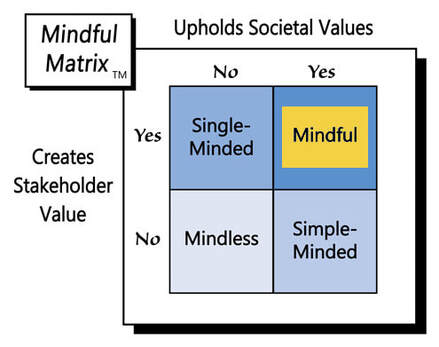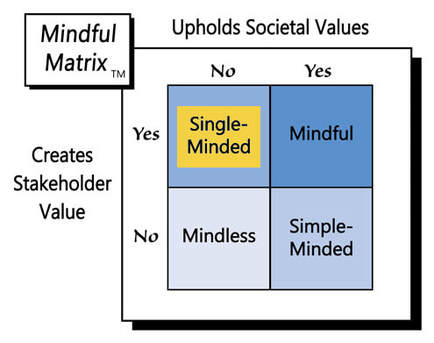author of Honorable Influence - founder of Mindful Marketing
By now, most people have driven by billboards or viewed videos online for “He Gets Us,” the omnipresent ad campaign aimed at changing people’s perceptions of Jesus. The campaign even aired ads during last February’s Super Bowl.
More recently, another campaign, which represents religion for some but with a very different objective, also has been broadcast in national media: #StandUpToJewishHate aims to stop antisemitism. The need for such an initiative stems in part from the sobering statistic that the American Jewish community represents just 2.4% of the U.S. population, but Jews are victims in 55% of the country’s religious hate crimes.
Given my past and present advertising-related roles, people sometimes ask my opinion about ads, and because I teach at a Christian University, my views on marketing that involves religion has some extra appeal.
However, as much as I enjoy sharing my thoughts, I really appreciate hearing others’ perspectives, from which I always learn. So, in the current case of these two high-profile campaigns, I reached out to a few wise friends and asked for their insights on the ads.
One person is a Christian church pastor; the others are Jewish – a software project manager and an executive coach. For the sake of brevity but at the risk of some awkward acronyms, I’ll refer to these kind contributors anonymously as CCP, JSPM, and JEC, respectively. Here are their reflections on the ads.
He Gets Us
In light of ongoing critiques of Christians and Christianity, CCP admitted having mixed feelings about the He Gets Us ads. Still, he was grateful for the campaign’s positive portrayal of Jesus.
JSPM and JEC also appreciated the ads. JSPM was particularly impressed by the campaign’s inclusivity, emphasized through third person plural language. He reflected, “Our world could certainly use more ‘us’ than ‘them’ . . . When we allow people to dehumanize others, bad things happen.”
Likewise, JEC was very impressed by the He Gets Us ads, which he found to be “incredibly open-minded” as they presented an accurate picture of Jesus, who was not close-minded.
Notwithstanding these positive attributes, CCP posed an important bottom-line question about the ads: Are they effective? More specifically, he wondered:
“The ads’ portrayals of Jesus highlight his love and grace, but do they clearly communicate to their audience who He is? Also, are those short dramatic snippets enough to cause someone to explore more about Jesus?”
Furthermore, knowing that purchasing national media isn’t cheap, and a 30-second Super Bowl spot can cost as much as $7 million, CCP asked the very reasonable question of whether taking practical actions would be more meaningful than words:
“While our Christian witness is important, do television ads or addressing the needs of people who are hurting provide a better representation to our world of who Jesus is and what He and his followers value?”
Still, CCP remained circumspect, “Maybe the fact we’re having this discussion is proof the ads are accomplishing their purpose.” He’s right: This kind of general image/brand-building is very difficult to quantify, and so much free press is likely helping, at least to some extent, to offset the costs.
#StandUpToJewishHate
As mentioned above, JSPM denounced dehumanizing actions and the acrimony that often underlies them. He added, “The abundance of hate in our society is crowding out love and is dangerous on many levels.” The hateful words and actions the #StandUp campaign seeks to discourage exemplify some of the more advanced forms of that abuse.
JSPM appreciated how each campaign, though very different in their focus, aimed to replace the prevailing narrative with a better one, i.e., Jesus was about loving others, and it’s wrong to radiate hate.
JEC supported the #StandUp ads’ goal of combatting hate and protecting people. He also fittingly differentiated the two campaigns, pointing out that while He Gets Us focuses squarely on Jesus and highlights specific spiritual disciplines He demonstrated like self-control, unconditional love, and hospitableness, #StandUp makes no mention of a deity or reference to specific tenets of faith.
In addition, JEC raised two good questions:
- How should the funding sources for both campaigns affect the ways their respective ads are interpreted?
- Do the #StandUp spots really represent religious advertising?
Admittedly, the second question surprised me as it challenged the fundamental framing of this piece and the logic: ‘Because the #StandUp campaign encourages rejection of acrimony aimed at Jews, and because Judaism is a religion, the ads are religious advertising.’
However, JEC reminded me that not all Jews consider themselves as adherents to Judaism, i.e., Jewish religion. For some, being Jewish is about cultural/and or ethnic identification, not necessarily religious beliefs and practice. So, although antisemitism may involve religious bigotry, it’s more broadly discrimination against specific people who are identifiable outside of their theological beliefs.
JEC’s analyses of the campaigns were also a good reminder that people, including me, see ads through the lens of their own worldviews and experiences, which can lead to very different interpretations of the commercial content. Those potential discrepancies are why it behooves those creating ads to step outside themselves and truly try to understand others’ perceptions.
The three interviewees provided some excellent analysis of the two specific campaigns, but what about the general idea of religion using paid-for mass communication? Is it right for religious organizations to advertise?
Considering this question, JSPM and JEC both pointed to the First Amendment’s protection of free speech. Outside of hate speech and a few specific requirements like truthfulness, individuals and organizations of all kinds do have great liberty to publicly disseminate information and to attempt to persuade people to believe and act in certain ways.
Still, the messages of religion-related ads cut deeper than most, which means religious organizations should strive to:
- Promote in proper situations: Ensure that ads appear at appropriate times and in appropriate places.
- Be inclusive: Use language that’s welcoming rather than exclusionary.
- Seek common ground: Emphasize points of agreement.
- Avoid offending: Don’t disparage others’ beliefs.
- Be compassionate: Understand the difficult challenges that many people face each day.
Not surprisingly, these are many of the same principles that the three contributors to this piece have identified and implied. Furthermore, following these principles doesn’t mean abandoning the tenets of one’s faith; rather the principles suggest not leading with antagonism.
It’s also helpful to recognize that most religious organizations’ advertising does routinely uphold these principles. These organizations are not necessarily using national television campaigns like the ones discussed above but rather promotional tactics like these:
- A synagogue buys newspaper space to advertise an annual flea market fundraiser.
- A church runs radio spots to promote its Christmas-themed musical.
- A new mosque uses outdoor signage to announce its opening.
This kind of religious advertising commonly accomplishes the organizations’ objectives and upholds values that virtually everyone understands, like decency, fairness, honesty, respect, and responsibility.
There are examples of good and evil mass communication in every sector. Religious advertising isn’t always pious, but when done in the right ways, it radiates “Mindful Marketing.”
Learn more about the Mindful Matrix.
Check out Mindful Marketing Ads and Vote your Mind!








 RSS Feed
RSS Feed